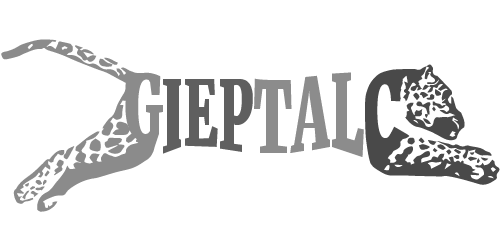
The Social Observatory of Central America and the Caribbean (OSACC) is a research group headquartered at the Federal University of Latin American Integration (UNILA), coordinated by Professor Paula Fernández Hellmund, professor and researcher at this house of studies (CV Lattes).
The OSACC is made up of professors and researchers who carry out research in the region with the aim of contributing to studies on Central America and the Caribbean.
The main topics of interest addressed in this space are:
- Transnational capital, imperialism, state and dominant classes
- Extractivism and development models
- History of Central America and the Caribbean (20th and 21st centuries)
- Central American and Caribbean Thought
As practical results, the Observatory intends to contribute to scientific knowledge about the region, incorporate new students to the study of Central America and the Caribbean, add researchers working on the subject, establish and collaborate with other research centers, participate in academic events, publish works (lectures, books, articles) and develop training spaces through courses or disciplines taught by professors involved with the OSACC.
Repercussions
Of group work
The practical results to be obtained through the observatory consist of the development of knowledge based on the discovery, acquisition and production of qualitative and quantitative sources and the construction of a database on Central America and the Caribbean. At the same time, new students are expected to start scientific research on topics related to our area of interest; publish the observatory, incorporate new researchers from the Federal University of Latin American Integration and other interested institutions in Central America and the Caribbean, and establish partnerships with other centers. We also try to show the progress of our research in congresses and publications, give conferences and short courses, invite specialized scientists from Central America and the Caribbean and continue to develop training spaces that are expressed even in the disciplines taught by the professors of our university. involved in the observatory.
Members
Lines of investigation
Knowledge areas
- Applied Social Sciences > Economics > International Economics > Political Economy
- Human sciences> Sociology> Economic sociology
Knowledge areas
- Humanities> Political science> International politics> International, bilateral and multilateral relations
Knowledge areas
- Human Sciences> Sociology> Political Ecology
Projects
Foreign capital, extractivism and social conflict in Central America and the Caribbean (1990-2018)
Summary
Since the end of the 20th century, we have witnessed the emergence of an extractive model of accumulation that is part of the rise of neoliberalism and the rebuke of Latin American economies. Central America and the Caribbean are no exception to this phenomenon, related not only to the changes in the capitalist system since the end of the last century, but also to the importance of this region in terms of sociocultural diversity and natural resources. Likewise, the region has mineral, energy and water resources which, together with its nature as a bridge between South America and North America, the Caribbean Sea and the Pacific Ocean, give it a geopolitical character of great relevance. .
The exploitation of local resources and the installation of the extractive model have been expressed through the actions of national and foreign companies that have the support of local states. Likewise, the populations affected by this model have generated numerous marches and protest acts, which have led to the criminalization, repression and repression of social conflicts by national States.
Therefore, this proposal aims to analyze the dynamics of foreign capital in Central America and the Caribbean and the political, economic and socio-environmental impacts of the intensification of the extractive model in the region between 1990 and 2018.
Project period: 08/01/2018 to 08/01/2024
Director: Paula Fernández Hellmund
Publications
Nicaragua debe sobrevivir. La solidaridad de la militancia comunista argentina con la Revolución Sandinista (1979-1990) Nicaragua debe sobrevivir. La solidaridad de la militancia comunista argentina con la Revolución Sandinista (1979-1990) 2015 FERNANDEZ HELLMUND, Paula Daniela.
Crisis política en Nicaragua: un análisis para su compresión https://revistas.uece.br/index.php/tensoesmundiais/article/view/1181
Modelo extractivista y conflicto social en Nicaragua. El caso del proyecto del canal interocéanico en Nicaragua (2013-2017). https://d1wqtxts1xzle7.cloudfront.net/63087033/Politicas-encadenantes-libre.pdf?1587823861=&response-content-disposition=inline%3B+filename%3DPOLITICAS_ENCADENANTES_SOBRE_CUERPOS_Y_V.pdf
La entrevista como herramienta metodológica en ciencias sociales: reflexiones, alcances y desafíos https://ceiso.com.ar/territorios-movimientos-sociales-y-conflictividades-experiencias-en-el-sudoeste-bonaerense/
Nicaragua. Problemas, estudios y debates de la historia reciente, 1979-2011. 2012. FERNANDEZ HELLMUND, Paula Daniela (Comp). https://ceiso.com.ar/nicaragua-problemas-estudios-y-debates-de-la-historia-reciente-1979-2011/
Fora o imperialismo da America Central. El caso de la solidaridad brasileña con la revolución sandinista https://dialnet.unirioja.es/servlet/articulo?codigo=5769495
FERNANDEZ HELLMUND, P. (2013) Solidaridad argentina con la Revolución Sandinista. Reflexiones sobre el trabajo de campo. En HERNANDEZ, G. Lo dicho y los hechos. Bahia Blanca, Editorial en Colectivo.
La fractura del movimiento revolucionario: tendencias dentro del Frente Sandinista de Liberación Nacional (1972-1979) http://webiigg.sociales.uba.ar/revistacuadernosdemarte/nro4/4_hellmund.pdf
A INFRAESTRUTURA NA AGENDA DA POLÍTICA EXTERNA DE CUBA E NICARÁGUA NO INÍCIO DO SÉCULO XXI: NOTAS SOBRE O CANAL DA NICARÁGUA E O PORTO DE MARIEL https://ceiso.com.ar/ries/index.php/ojs/article/view/21
El proyecto del canal interoceánico en Nicaragua y la incidencia de capitales chinos en América Central. https://d1wqtxts1xzle7.cloudfront.net/57283680/Relaciones_China_Nicaragua_Fernandez_Romero_Wimer-libre.pdf
¡ QUITEN LAS MANOS DE NICARAGUA!: SOLIDARIDAD ARGENTINA CON LA REVOLUCION SANDINISTA (1979-1990) https://www.scielo.cl/scielo.php?pid=S0719-09482013000200003&script=sci_arttext&tlng=pt
CAPITAL EXTRANJERO EN NICARAGUA DURANTE EL NEOSANDINISMO: LOS CASOS DE RUSIA Y CHINA (2007-2016).
Un análisis crítico de las relaciones económicas internacionales cubanas durante la presidencia de Raúl Castro (2008-2018) https://repositoriotec.tec.ac.cr/handle/2238/12194
Análisis de las relaciones entre Estados Unidos y Haití (1915-2015): notas para pensar la dialéctica del imperialismo en el Caribe http://periodicos.pucminas.br/index.php/estudosinternacionais/article/view/15226
Mujer y trabajo rural. Reflexiones en torno a la Revolución Sandinista: pasado y presente. https://publicaciones.sociales.uba.ar/index.php/CS/article/view/401
El pensamiento antiimperialista en Augusto C. Sandino y Carlos Fonseca Amador https://ceiso.com.ar/wp-content/uploads/dt3-1.pdf
El golpe de estado en Honduras como punta de lanza para los golpes “institucionales” en América Latina https://ceiso.com.ar/wp-content/uploads/documentos_trabajo_ceiso_2-1.pdf





